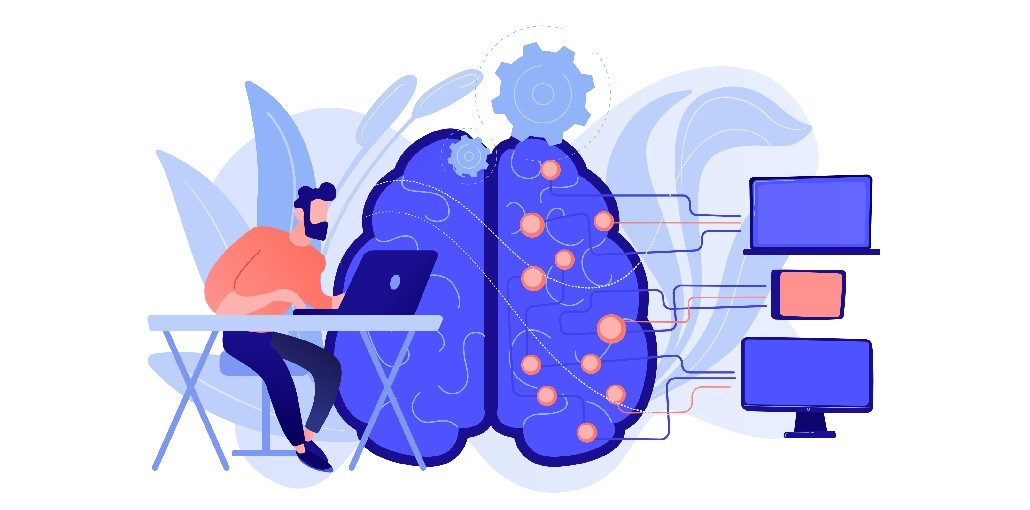Mobile app development companies are keeping an eye on AI trends since its first introduction. These companies are trying out new technologies and discovering ways to implement them in their projects. In this blog, we will use this accumulated information to discuss artificial intelligence in mobile app development and how Ai is transforming everything ranging from app usage to its development. Do you know that artificial intelligence is going to play a huge role in increasing global GDP by $15.7 trillion by 2030? Another report states that Ai is boosting the overall productivity in developed countries by 40%.
Role of AI in Mobile App Development
It’s amusing to note that 67% of people are ignorant of their use of AI. Because a lot of AI/ML functionality can be concealed, not all artificial intelligence-based capabilities of a service are front and center. Let’s look at some apparent and less visible uses of AI in mobile app development.
- Enhanced Personalization: Thanks To AI in app development users can experience customized mobile apps based on their needs. By leveraging machine learning algorithms, apps can now gather and analyze vast amounts of user data to understand individual preferences, behaviors, and patterns. This enables developers to create highly customized experiences by recommending relevant content, tailoring interfaces, and delivering personalized notifications. For instance, e-commerce apps can suggest products based on user preferences, while news apps can curate articles based on individual interests. This level of personalization not only boosts user engagement but also strengthens brand loyalty.
- Intelligent Virtual Assistants: Virtual Assistants powered by AI, such as Siri, Google Assistant, and Alexa, have become an integral part of our daily lives. These intelligent assistants have transformed mobile apps by enabling voice commands and natural language processing. Users can now interact with apps through voice inputs, allowing for hands-free and intuitive navigation. Additionally, AI-driven virtual assistants can understand user queries, offer contextual responses, and perform tasks within the app, enhancing overall convenience. This technology has particularly influenced sectors like healthcare, where virtual assistants can help users manage medication, schedule appointments, or provide health-related advice.
- Predictive Analytics and Recommendations: AI-powered predictive analytics has significantly improved user experiences within mobile apps. By analyzing user behavior, historical data, and contextual information, apps can now anticipate user needs and offer relevant suggestions, another reason why developers are prioritizing AI in mobile app development. For example, music streaming apps can curate playlists based on individual listening habits, while travel apps can recommend personalized itineraries based on past preferences. Moreover, AI-driven recommendation engines can offer targeted advertisements, leading to higher conversion rates for businesses. This level of personalization and proactive assistance make mobile apps more intuitive and user-friendly.
- Streamlined Development Process: Developers are now using AI in mobile app development because it is a fast, effective, error-free, and most importantly cost-effective approach. AI-powered tools and frameworks provide developers with automated code generation, reducing the need for manual coding. This accelerates development timelines and enhances productivity. Moreover, AI algorithms can automatically detect bugs and errors, improving the app’s stability and performance. Developers can also leverage AI-driven testing tools to automate the testing process, ensuring app quality and reducing human error. As a result, AI simplifies the development cycle, enabling developers to focus more on innovation and creativity.
- Facial Recognition: the face recognition lock system is the most prominent feature of smartphones because of its sophisticated use of nature and extra protection. These technologies utilize AI and ML-based technologies to recognize a person’s face to unlock the person’s phone and other apps. In the next few years, developers will use more advanced AI and ML-based techs for mobile app development and use it to recognize changes in facial traits.
AI and machine learning has completely transformed mobile app development while also transforming users’ perspective on the whole process. People are slowly but steadily learning this AI technology since it’s already taking over mobile apps. AI is helping in mobile app development by improving user experience and interaction, AI is the reason behind increased productivity and global business growth. The day is not far away when we will be using AI instead of smartphones and computers to connect, work, share, and do other necessary tasks.

